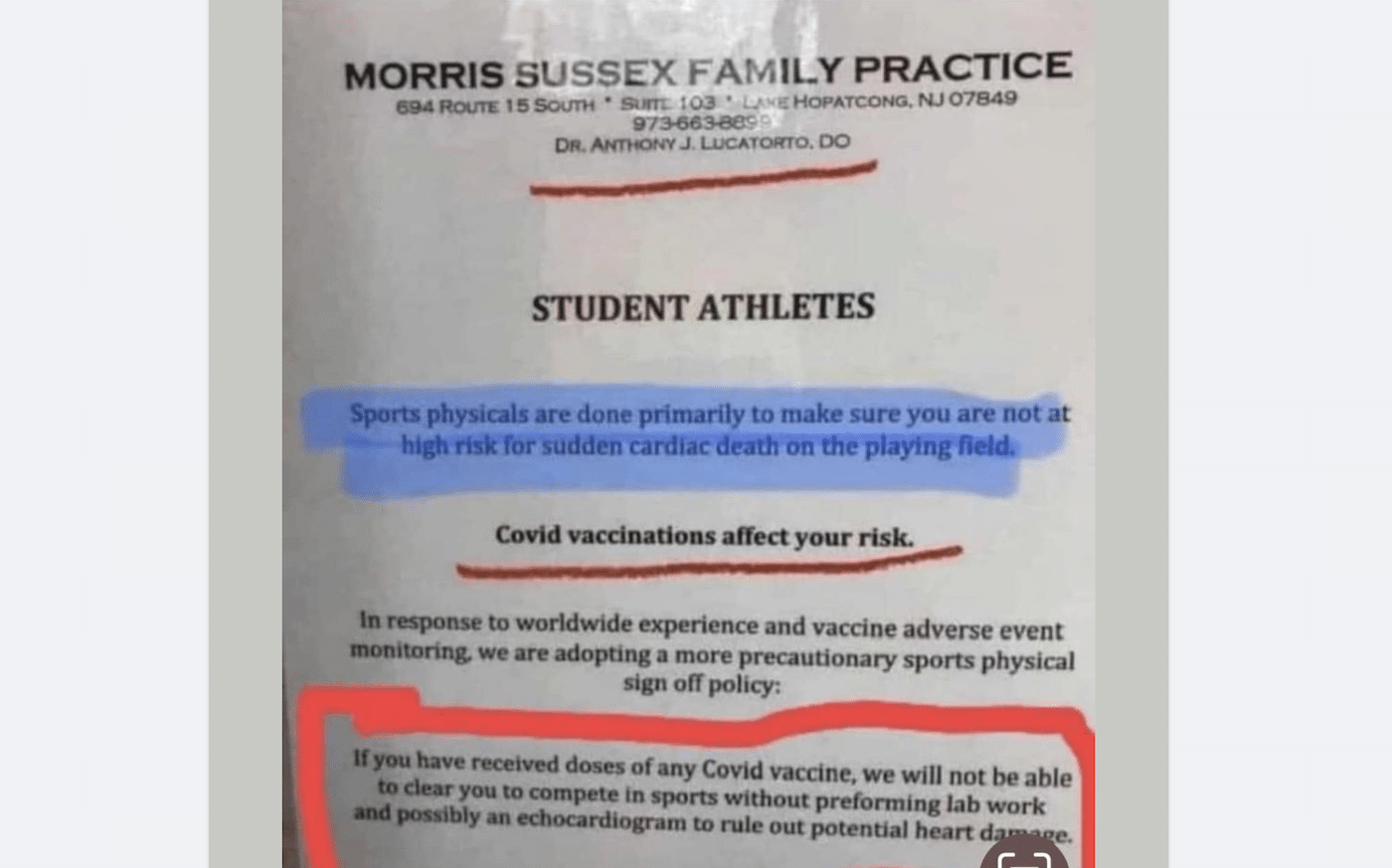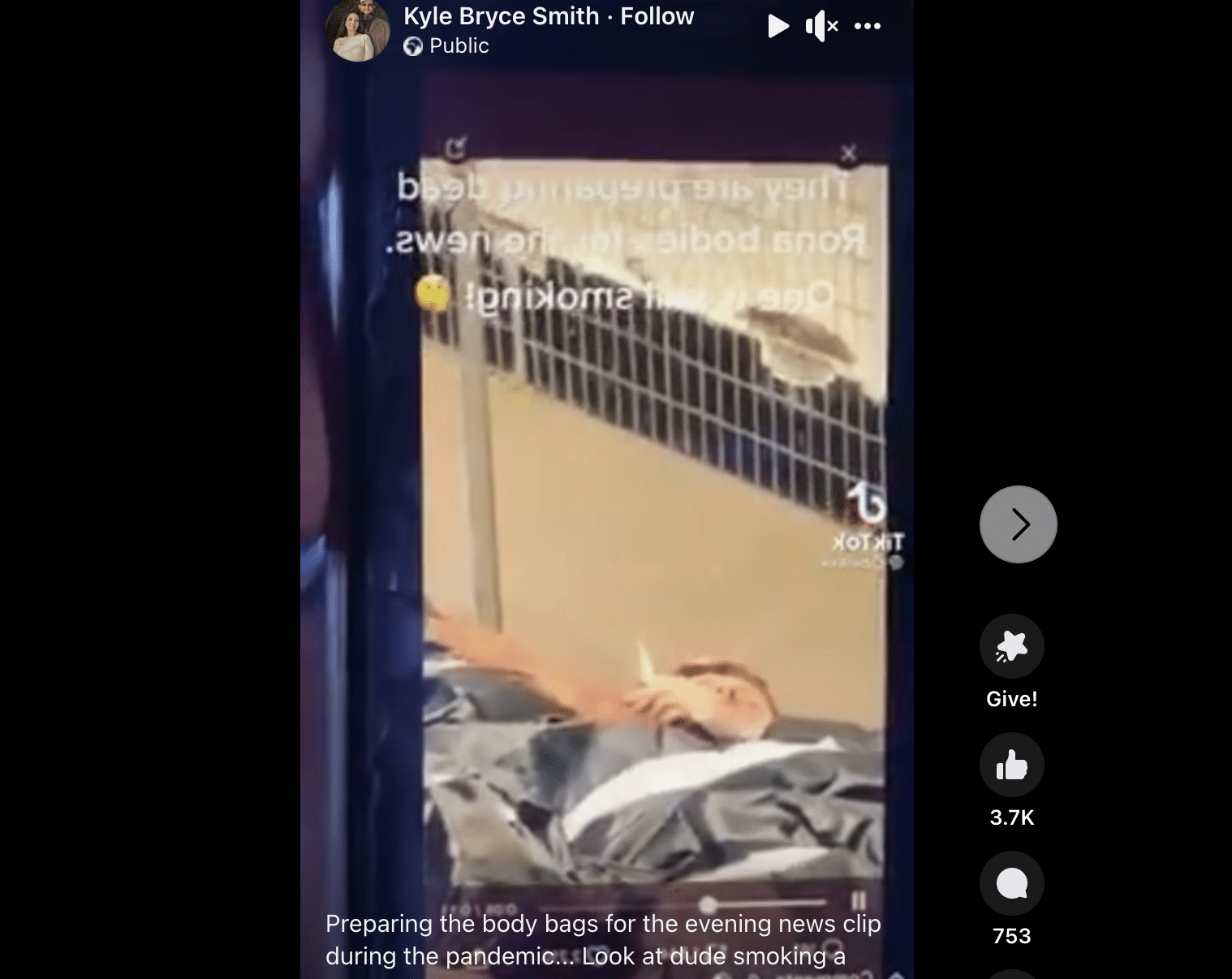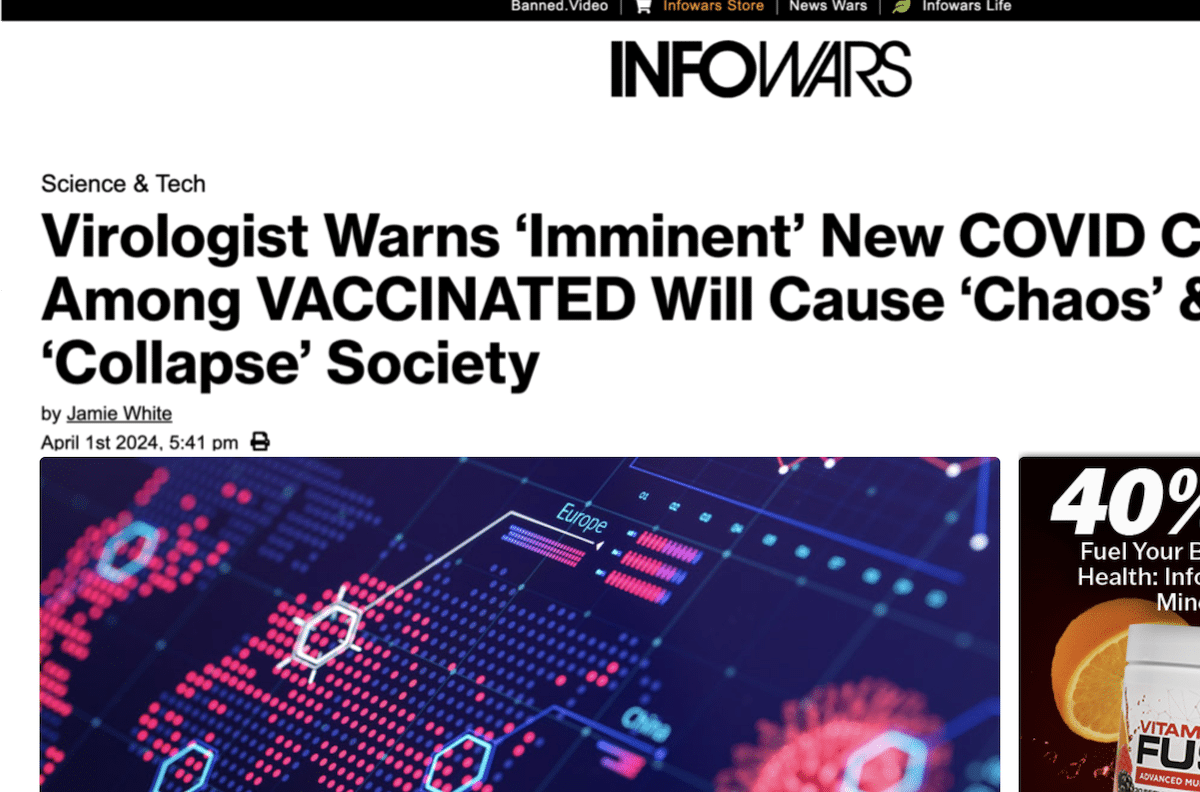- Health
There is no evidence that luciferase is an ingredient in the COVID-19 vaccines
Key takeaway
Luciferase is an enzyme that transforms luciferin into light through a chemical reaction. It is a common tool in scientific research to monitor biological processes, and was used in the development and evaluation of COVID-19 vaccines. However, luciferase isn’t an ingredient in the COVID-19 vaccines.
Reviewed content

Verdict:
Claim:
Luciferase is in the COVID-19 vaccines to tag and track people
Verdict detail
Factually Inaccurate: Luciferase is an enzyme that catalyzes the transformation of luciferin into light. It is a common tool in scientific research to monitor biological processes, and was used in the development and evaluation of COVID-19 vaccines. However, luciferase is not an ingredient in the COVID-19 vaccines.
Full Claim
“why would Big Pharma not disclose that Luciferase is an ingredient in the vaccines - since it’s clearly listed (in at least one patent from one company) as being used”; “Under the cover of vaccinating people, we are really preparing to tag and track people”
Review
On 1 November 2021, Newsmax White House correspondent Emerald Robinson tweeted a warning: “Dear Christians: the vaccines contain a bioluminescent marker called LUCIFERASE so that you can be tracked”. She also recommended that Christians “read the last book of the New Testament to see how this ends”. Robinson’s tweet was soon deleted, and her Twitter account temporarily locked for repeated violations of Twitter’s COVID-19 misinformation policy (before being permanently banned on 10 November 2021). Her employer, Newsmax, disavowed Robinson’s claims in two statements. As of 11 November 2021, Robinson is currently off air as Newsmax reviews her tweet.
Despite this pushback, Robinson doubled down on her claims in a 4 November 2021 post on her Substack, “Emerald Robinson’s The Right Way”. In her post, Robinson repeated her claim that the COVID-19 vaccines contain luciferase, using a patent owned by Moderna as evidence, and said that vaccinations are a cover to “tag and track people”. In her post, Robinson also called the COVID-19 vaccines “totally experimental and untested”. She further suggested that ivermectin and hydroxychloroquine are therapeutic drugs that were “swiftly outlawed” to “force everyone to get the new vaccines”.
As we’ll show below, the claim that luciferase is in the COVID-19 vaccines to tag and track humans is inaccurate. Robinson’s other claims–that the vaccines are experimental, and that drugs like ivermectin and hydroxychloroquine were outlawed to force people to get vaccinated–are also false.
Claim 1 (Inaccurate):
“Luciferase is an ingredient in the vaccines” to “tag and track people”
Bioluminescence is the process by which chemical reactions generate light. One bioluminescent molecule is luciferin, which reacts to oxygen and energy to produce light; this process is catalyzed by luciferase, a bioluminescent enzyme. A number of organisms produce bioluminescence via luciferase, from fireflies to a number of marine species, like squids, jellyfish and bacteria. Luciferin and luciferase were first isolated at the end of the 19th century by French scientist Raphaël Dubois. The names of the two molecules are based on lucifer, the Latin word for light-bearing.
Bioluminescence is a powerful tool in research, allowing scientists to monitor biological processes like gene expression, tumor progression and how proteins interact. As a bioluminescent enzyme, luciferase has been extensively used in biological and medical research, from tracking the journey of the parasite Toxoplasma gondii in mice during the course of infection to using the glow of light to understand interactions between brain cells.
Due to its usefulness, luciferase has also been used as a tool in studying SARS-CoV-2, the virus that causes COVID-19. For instance, virologists at the University of Texas Medical Branch (UTMB) at Galveston used luciferase to “develop faster and more accurate diagnostic tests for COVID-19 as well as to analyze potential therapies and gain a clearer understanding of the SARS-CoV-2 virus itself” according to a UTMB news piece from July 2020. The UTMB team, led by professor Pei-Yong Shi, also used luciferase to help pharmaceutical companies evaluate potential COVID-19 vaccine candidates.
Luciferase was also used to study and develop components used in the mRNA vaccines, such as the lipid nanoparticles. For instance, in a 2015 paper by Drew Weissman, Katalin Karikó and colleagues, firefly luciferase helped the scientists explore the potential of using lipid nanoparticles to deliver mRNAs in mice[1].
While luciferase was used in the development and evaluation of COVID-19 vaccines, it isn’t present in the vaccines themselves. Lists of the ingredients for all three of the COVID-19 vaccines approved or authorized in the U.S. are available in fact-sheets provided by the U.S. Food and Drug Administration (FDA): Moderna, Pfizer-BioNTech and Janssen. Luciferase isn’t among the listed ingredients for any of these vaccines.
Despite this, since late 2020 there have been a number of inaccurate claims about COVID-19 vaccines containing luciferase and attempts to connect luciferase to Lucifer, a name used by Christians to refer to the devil (see fact-checks of the claims here and here). Robinson’s now-deleted tweet and subsequent Substack post are among the latest iterations of these claims, which have been fact-checked by Reuters, the Associated Press, USA Today, Snopes, and others. In all cases, fact-checkers concluded that luciferase isn’t an ingredient in the COVID-19 vaccines, and that there is no connection between Lucifer and luciferase other than a similar etymology.
In her Substack post, Robinson broke down the investigation that led to her claim of luciferase’s presence in the vaccines. “1) I went to the MODERNA website. 2) I clicked to the PATENTS page. 3) I found PATENT US 10,703,789 4) I conducted a keyword search for something called: Luciferase”.
There are four instances in which the word “luciferase” appears in the 248 pages of patent US 10,703,789 (available here), which concerns using modified polynucleotides to produce proteins; Robinson appears to take these four instances as evidence of the enzyme’s presence in the vaccines. However, one instance is in the title of a 2012 article referenced in the patent, and the other three are in a table listing targets for primers and probes–small segments of DNA necessary in PCR, a technique used to copy nucleic acid sequences–that the patent document explains “may be usefully [sic] in the PCR reactions of the present invention”.
The patent document does list vaccines as one potential product of the patented invention, but US 10,703,789 doesn’t specifically mention Moderna’s COVID-19 vaccine. In fact, the words “COVID”, “coronavirus” and “SARS-CoV-2” are nowhere to be found in the document. As such, patent US 10,703,789 does not provide evidence that the Moderna or other COVID-19 vaccines contain luciferase.
Like others before her, in both her deleted tweet and Substack post, Robinson claimed that luciferase is in the vaccines to track people. Claiming that tracking devices, like microchips, software, and magnetic chips that connect to 5G, are present in COVID-19 vaccines is a trend within vaccine misinformation. As the U.S. Centers for Disease Control and Prevention made clear in a FAQ: “the government is not using the vaccine to track you”.
In labs, luciferase is used as a tool to monitor and detect biological processes, but it only works in the presence of luciferin, the molecule it acts on. Since neither luciferin nor luciferase are in the COVID-19 vaccines, Robinson’s claim that vaccinations are a cover to “tag and track people” with luciferase is also inaccurate.
Claims 2 and 3 (Inaccurate):
the vaccines are “totally experimental and untested” and ivermectin and hydroxychloroquine were “swiftly outlawed”
In her Substack, Robinson made additional inaccurate claims about the COVID-19 vaccines. Specifically, she described the vaccines as “totally experimental and untested”. As explained in a previous Health Feedback claim review, the COVID-19 vaccines used in the U.S. were approved or authorized by the FDA that reviewed data from clinical trials showing the vaccines were effective and safe. As such, Robinson’s claim that the vaccines are “totally experimental and untested” is inaccurate.
Robinson also claimed that drugs like ivermectin and hydroxychloroquine were “swiftly outlawed” to “force everyone to get the new vaccines”. Contrary to her claim, neither ivermectin nor hydroxychloroquine is outlawed; both can still be taken for their approved uses. However, following evaluation of scientific data on the effectiveness of these drugs to treat and/or prevent COVID-19, the FDA hasn’t authorized or approved the use of ivermectin to treat or prevent COVID-19, while the COVID-19 Treatment Guidelines Panel, convened by the U.S. National Institutes of Health, has recommended against the use of hydroxychloroquine to treat hospitalized COVID-19 patients.
Conclusion
This is not Robinson’s first time spreading misinformation about the COVID-19 vaccines. In August 2021, she misleadingly suggested on Twitter that the CEO of Pfizer wasn’t vaccinated (fact-checked here). Earlier, in a tweet from September 2020, she wrote that “some of these new vaccines will rewrite your DNA”, an oft-repeated claim that has been previously fact-checked by Health Feedback (see here and here). Robinson’s September 2020 tweet also mentioned luciferase.
As we explained, luciferase is a helpful tool in scientific research, and was used in the development and evaluation of the COVID-19 vaccines. However, luciferase is not an ingredient in any of the COVID-19 vaccines approved or authorized in the U.S., making Robinson’s claims, first on Twitter then on Substack, inaccurate.
References
- 1 – Pardi et al. (2015) Expression kinetics of nucleoside-modified mRNA delivered in lipid nanoparticles to mice by various routes. Journal of Controlled Release.



